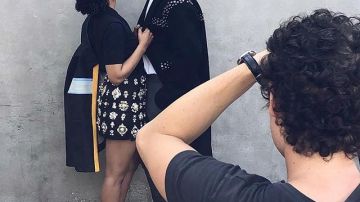Tessa Thompson Gets Real About Defying The Sports Wife Stereotype in Creed II
Everyone has been talking about Creed II, the sequel to 2015’s Creed, the blockbuster spin-off from the Rocky franchise

Photo: Instagram/blacchyna
Everyone has been talking about Creed II, the sequel to 2015’s Creed, the blockbuster spin-off from the Rocky franchise. There’s a lot of hype around the film, excitement around Tessa Thompson and Michael B. Jordan’s on-screen chemistry but hardly enough dialogue around Tessa’s character and how she breaks stereotypes associated with sports wives. In a recent interview with ESPN, the Afro-Latina actress gets honest why it was important for her to play the role of Bianca especially being a woman of color.
“When we talk about sports movies and the way that women are portrayed in them, I think Bianca is really singular in that she has autonomy,” Thompson said. “The thing that’s so exciting about building Bianca’s character is her honesty and authenticity.”
Bianca’s character is originally from Philly. She’s the lead character, Adonis “Creed” Johnson’s (played by Michael B. Jordan) girlfriend turned wife. But unlike most sports wives, Bianca shines on her own. Outside of being Creed’s wife and support system, she’s also a hearing-impaired musician who sings and talks using a hearing aid. What’s important is to note is that Bianca doesn’t sacrifice her dreams or career goals to support Creed’s, which is something more and more modern women are realize they don’t need to do. We don’t need to put our men’s needs before our own anymore and amen to that!
“As a woman of color, I really relish the opportunity to play anything but strong,” Thompson said. “It’s woven into the DNA of black women to be strong. It’s because we have to be. Fierce black women are inspiring and galvanizing. But I think in some ways we have also been boxed into a space where we are hypersexualized and strong’ as opposed to all the other things we can be.”
Thompson also stresses the importance of seeing not only black characters in films but black characters that are relatable.
“It’s not not just enough that we get cast, It’s what we get cast in,” she adds. “We deserve to see ourselves.”
We’ve definitely been making progress when it comes to stronger female roles being written for women of color. Roles like this prove that. Now let’s work on seeing more WOC play the actual lead in sports films. Now that’s something we can use a lot more of these days.

















